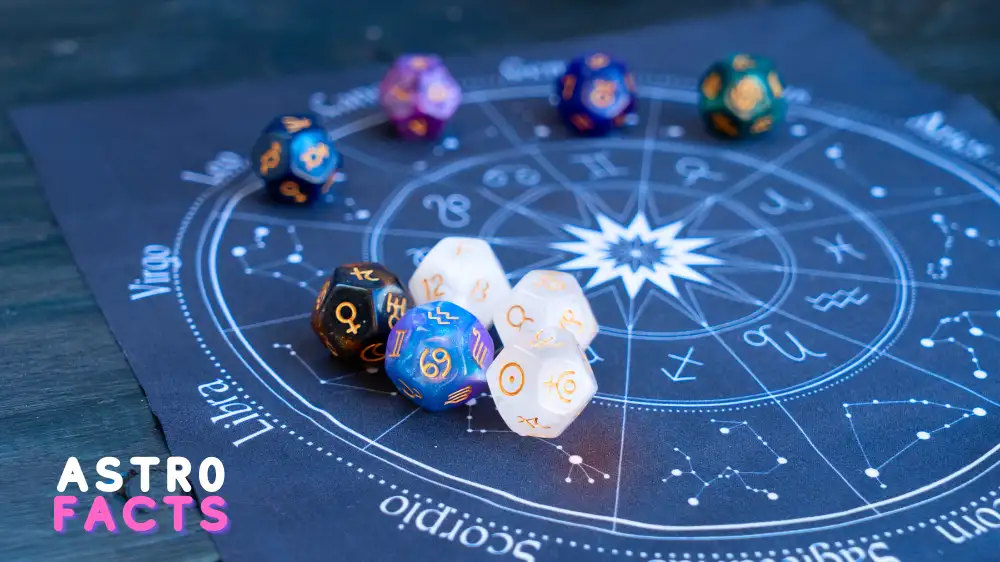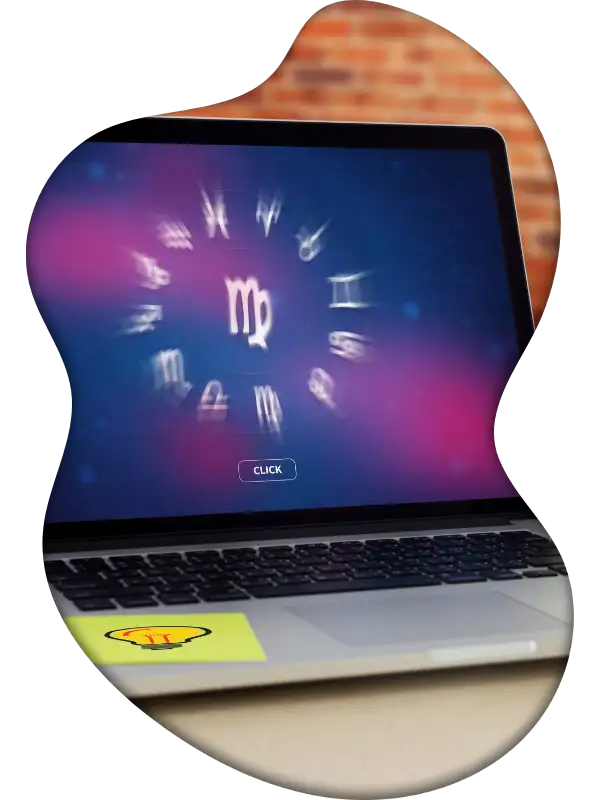Astrology was once a mathematical discipline taught at universities. Now, it has turned into a mass entertainment phenomenon. As a result, various modern myths and legends have emerged around astrology.
In this article, I will tell you about eight noteworthy facts about astrology that everyone interested in this science should know.
[toc]
Planet in a Horoscope Does Not Signify Anything Definite
You may have heard from various bloggers that your Venus in the third house signifies this or that your Mars in a particular house means something else. In reality, this is not the case.
No planet signifies anything specific in your natal chart. For example, in my horoscope, Venus simultaneously indicates death from kidney disease, disease, or freedom from serious illnesses, successful and unsuccessful romances, and partially shows a flow of money. It does not relate to other spheres of life at all.
Therefore, saying that Venus signifies something in my horoscope would be incorrect. In your horoscope, the same Venus or Mars will have completely different meanings depending on how the stars were positioned at the moment of your birth. Therefore, saying a planet in the horoscope means one thing is incorrect.
Any Sphere of Life is Shown by Several Planets at Once
Often, you hear: "Does my Mars in the seventh house mean eternal singleness?" Or "Does this planet signify a ban on money?"
Nothing of the sort. In your life, you may have several marriages and divorces, and the same astrological house will indicate all of this. At the same time, the first marriage may be more or less successful, the second may be very unsuccessful but long-lasting, and the third may be successful and ongoing until today. The same planet cannot show such different circumstances in life in the same sphere. Therefore, it is evident that even marriage, children, or money are always indicated by several planets.
The same role is distributed among different planets. And if you see something negative that promises unhappiness in a specific sphere of life, it does not mean this unhappiness will constantly haunt you. Many other beneficial planets may directly relate to the same sphere of life.
[promoFreeCourse]
Pluto Does Not Affect Your Life
This is easy to verify in practice. In modern astrology, it is believed that Pluto rules, like Mars, the sign of Scorpio. However, if you construct any forecast of an event based on a natal chart or a horary chart involving Mars and then replace Mars with Pluto, you will see that your entire forecast falls apart.
Moreover, Pluto is one of many dwarf planets beyond Neptune's orbit. There are hundreds and thousands of such objects, but this dwarf planet was randomly discovered first.
Astrologers seized upon it as the first trans-Neptunian planet. Many astrologers attribute qualities to Pluto that are related to the image of Pluto in mythology. Not only was Pluto randomly discovered first, but it was also given a random name. A schoolgirl came up with the name Pluto, which happened randomly.
We do not have a long-standing observation of the correlation between Pluto's positions and its influence on certain life events. You can read more about the Pluto myth in the article presenting three logical arguments against Pluto, as well as in the article with a practical verification of Pluto’s influence.
Horoscope Does Not Shape Your Personality
Modern mathematics has grown from the mathematical apparatus of astrology. Various formulas of spherical geometry and different computational techniques, such as primary directions, progressions, firdars, and so on, are in no way connected to psychology.
Astrologers created all these techniques to predict precise events. It would be strange to calculate formulas of spherical geometry to tell how wonderful you are or what talents you possess. That's not how it works. These techniques were not designed for that purpose at all.
Furthermore, your personality, which many astrologers attempt to describe based on the horoscope, changes significantly over time. Today, you may have one character; some time passes, and you may find yourself in different, possibly more challenging conditions and begin expressing yourself entirely differently. In your childhood, you were a completely different child altogether. Therefore, there is nothing singular about you that could rightfully define you or describe you as a personality throughout your entire life.
One could say that you are a different person in different circumstances. In one period of life, in childhood or adolescence, you are one person; in old age or mature adulthood, you are a completely different individual. There is nothing fixed about you that spans your entire life.
Your environment, upbringing conditions, and the flow of information largely shape your personality. Astrology, in general, is not connected to psychology.
My recent quick test of modern astrology methods fully confirmed this.
If you want to see exactly how modern astro-psychology makes mistakes, take a look at the article about Venus’s influence in a man’s chart. According to the classical canons of modern astrology, it should show which women a man chooses or how he expresses himself in love. But in practice, this is not the case.
There are More Fatalistic Horoscopes and Less Fatalistic Ones
It is correct to say that some horoscopes are more deterministic towards a particular type of activity. And some are less so. Suppose a horoscope's two specific sectors, called the first and tenth houses, repeatedly promise the same thing in different ways, for example, associating a person's life with science or associating a person's life with bloody deeds. That person will constantly be inclined towards scientific activity, totalitarian rule, revolutionary movements, etc.
Fortunately, very few horoscopes strongly compel a person to move in a strictly defined direction. Why is that fortunate? Because people who have such notable horoscopes lack the freedom to choose what to do in life. They cannot, for example, search for their purpose; they do not have time for it. They cannot try themselves in different roles because they are constantly driven in a strictly deterministic direction. And such horoscopes exist, though not commonly.
Typically, holders of these horoscopes become very outstanding personalities for two reasons:
- Firstly, due to their passion, they stand out against average people,
- Secondly, because they have been engaged in the same thing continuously since childhood, they achieve a high level of skill or efficiency, thus gaining prominence compared to ordinary people.
But being an ordinary person is a much more advantageous position because people always have the choice of what to do, how to express themselves, and so on. People with deterministic horoscopes do not have such options. Although they achieve great heights, they are not free. They are like a powerful genie locked in their bottle.
[promoFreeCourse]
Stars Do Not Constantly Influence Us
Stars do not constantly influence us. Most of the time, we are left to ourselves or the will of chance. Stars influence us during particular periods, and there are few such moments—maybe a dozen, maybe two dozen in your life.
During these periods, the circumstances around you, figuratively speaking, "tighten" (become active), and you feel an irresistible desire to be in a specific place at a particular time. Then, the interventions of the stars, though rare but clearly predictable, lead to realizing critical key events in your life, such as marriage, relocation, etc.
It follows that an annual forecast does not work, as a rule. Astrologers' attempts to make predictions for a year or a month and find a thousand events there are futile.
In general, the natal chart does not show everyday events such as moving from one department to another, a weekend trip to the lake, etc. Only major/critical events of your life are visible in the natal chart.
During these periods, you can see (astrologically observe) how the stars align in various configurations: when primary directions approach, followed by confirming solar and lunar ones, and after that transit, which brings all these promises into action—into the realization of the final event. All this happens very rarely.
On these rare days of a specific month and year in a person's life, genuinely outstanding events arise. The rest of the time, your natal chart "remains silent"; there is nothing there. Therefore, any attempts by astrologers to make predictions for a month, a week, or a year are generally doomed to failure. In most cases, nothing special happens during the year.
A correct approach is to make thematic forecasts for different areas of activity or life, such as childbirth issues, divorces, family matters, financial inflows or social declines or rises, etc. In a specific theme, you must forecast key dates many years ahead. As these dates approach, you can take the nearest forecast, the nearest time of realization, and carefully consider under what circumstances all this will unfold and what forms this or that event will take, taking into account the person's current context.
Synastry, in its Classic Form, Does Not Work in Astrology
Synastry is the comparison of two horoscopes to determine compatibility and accordingly recommend whether one should enter into marriage or a relationship with that person or refrain from doing so.
In reality, relationships between people develop under entirely different principles from an astrological perspective. If you observe married couples, you will notice a remarkable feature in their horoscopes.
For instance, the birth of a child is pinpointed to the exact day in both the husband's and wife's horoscopes. If a couple is destined to relocate to another country, the date of relocation is specified as the exact day on both the husband's and wife's horoscopes. If a couple is destined to experience a financial decline or, conversely, some social joint ascent, this is evident in both the wife's and husband's horoscopes.
In other words, people come together not based on the principle of internal character matches but on the combination of those critical events they are destined to experience together. When two individuals with such horoscopes come together, they form a stable pair until these joint events are realized.
Thus, people are matched not by characters but by the sequence of events that they are fated to go through together. Character compatibility is secondary. People can live happily for several years and then part ways or live like "cats and dogs" for 20-30 years. Character does not affect the quality or duration of marriage—this is a myth.
Relocation, Often Discussed in Connection With Solar Returns, Does Not Work
The fact is that, indeed, solar returns provide a chart that sets trends for future events in a specific year. A solar return chart, constructed in particular geographical coordinates, shows your potential fate explicitly associated with that place.
Most always, except for the rare moments I mentioned, these trends do not materialize because they lack the specific accompanying conditions dictated by the natal chart. But sometimes, these events do occur. And if you live in another place, the events destined for that year do not manifest.
However, for this to happen, you must leave your current residence and live for the entire period of the solar return in another country. Accordingly, when you leave this place for a few days but return, you again enter into the flow of those events associated with this place.
Therefore, one-time trips do not help, but long-term stays, specifically for a whole year (for the entire duration of this chart), can work. However, in most cases, astrologers do not suggest this option. They select a place for you to go literally for a day to meet your solar return, which usually coincides with your birthday, and then return to your home. Returning to your own home does not work.
You can see an example of relocation in practice.
[promoFreeCourse]
Human Beings Have Immense Free Will And a Vast Field for Maneuvering
Planets intervene in our lives only during particular and relatively rare periods. But between these periods, humans are left to their own devices. The exception consists of individuals with highly deterministic horoscopes who cannot engage in activities they prefer during long periods between stellar interventions. They are compelled to pursue activities aligned with their inner nature and internal drive, which is precisely influenced by two sectors of the chart: the first and tenth houses.
In most cases, the average person enjoys enormous freedom to maneuver. Therefore, a person who lives from one intervening transit to another, left to their own devices, might, for example, become interested in accounting because
Their friends are accountants; They read exciting books about it or They watched an intriguing movie about the life of an accountant.
Alternatively, their interest in accounting might have arisen for entirely random reasons.
With equal probability, a person could have become interested in programming under the influence of random factors. When annual forecasts promise significant social or career success for a specific year based on one's natal chart, if they are a programmer, they will interpret these chart indications through the lens of programming. Consequently, they would advance their career in this field.
Had random factors led them to become accountants by that point, they would have encountered the same promise in their natal charts but in the role of accountants.
Thus, they would have experienced a significant career breakthrough, specifically as an accountant, which would largely determine their future development. Agreeably, if you are a successful programmer with accolades, merits, and a good position, you are unlikely to decide to pursue theater arts suddenly. Although such cases are possible, they are less frequent.
Accordingly, when the person meets directions/transits/solar return charts being involved in a particular sphere of life, the native generally proceeds and realizes themselves in that already existing direction. However, this does not imply that they cannot change their field of activity. It is entirely possible. Therefore, as I mentioned, the stars can influence the trajectory of a person, but for the most part, they do not determine it.
These are the key points I wanted to convey about astrology to ensure you have a correct impression of it.


